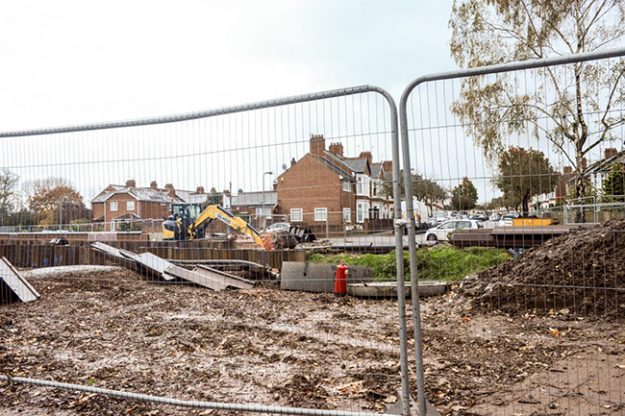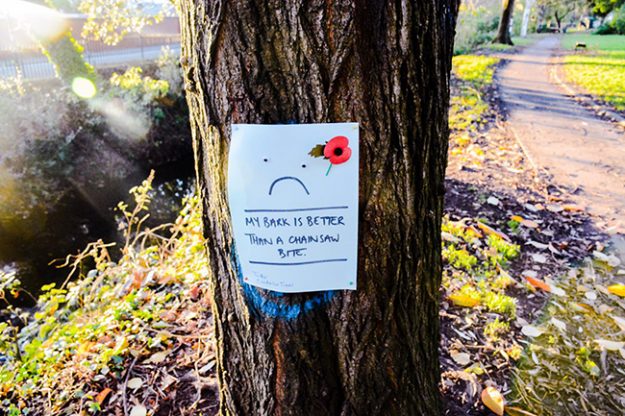For over 100 years, Waterloo Gardens has existed as a green space in Cardiff that has brought locals together. Dog-walkers and families alike would descend on the park on a daily basis.

Today however, the sight you will encounter there is one of mud, metal fencing, and construction vehicles.

Since January 2017, work has been taking place to introduce a Natural Resource Wales (NRW) flood scheme after the brook there burst its banks four times in the last 10 years. The resulting flooding caused substantial damage and distress to local residents and businesses.
Cardiff Council estimated in 2015 that the city incurs over £26 million worth of damages each year due to flooding from local flood sources and claim that climate change and high sea waters will only cause the problem to get worse.
To prevent and protect against any future flooding, NRW made the decision to install a number of measures around the brook, including flood walls and embankments, which they claim will reduce the flood risk to 360 homes and 45 businesses.
In order to do this, a plan was drawn up to make considerable alterations to the landscape across Waterloo Gardens and the adjoining Roath Brook Gardens, Roath Mill Gardens, and Railway Gardens.
The proposal has drawn substantial criticism from local residents, particularly with regard to what they see as the unnecessary felling of trees.
NRW Project Executive, Gavin Jones, told us that they “are planning on removing approximately 150 trees from the four parks, and we plan to replant 105 trees… of high quality.”
For many residents, this is simply too heavy a cost.
One Penylan Local, Ceri Capel, said “something lesser could have been done, and this feels and looks like overkill.”

In particular, NRW have proposed a complete re-branding of Waterloo Gardens to become a feature space, including the introduction of a controversial Edwardian-style pergola.
This has meant closing the bridge at this location, which they have stated will be reopen by April 2018. A footbridge will be available again by February 2018.

All pilling is also expected to be completed be completed by January, with the different parks being fully reopened between Spring and the end of Summer 2018.
For further information on the Roath Flood Scheme, visit: https://naturalresources.wales/about-us/our-projects/roath-flood-risk-management-scheme/?lang=en
